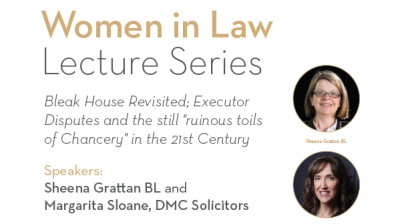Death registration to be made possible before inquests conclude

Heather Humphreys
Families will be able to register the death of a loved one even where a coroner has yet to conclude an inquest under new legislation announced by ministers.
The change, aimed at addressing practical difficulties for families who are seeking to manage the affairs of the deceased person, comes in the Civil Registration (Electronic Registration) Bill 2023.
The bill will introduce significant reforms to the civil registration system first introduced in 1864, in particular by allowing families to register births and deaths online for the first time.
It will simultaneously reduce the time in which a death must be registered from the current three-month timeframe to 28 days.
The bill will also introduce changes to the system of registering still births, which will now be expanded to other relatives of the stillborn child where currently only the parents may search the register and obtain a certificate.
Social protection minister Heather Humphreys said: “I am pleased to have secured Cabinet approval for the Civil Registration (Electronic Registration) Bill 2023.
“This bill looks to modernise the civil registration service where the current requirement to attend in person has gone unchanged since the introduction of civil registration in Ireland in 1864. This new customer service channel will give greater flexibility to parents and relatives seeking to register life events.
“Following a recent public consultation process, this bill will also allow for a new process for registering deaths and for reducing the timeframe in which a death must be registered. This will bring Ireland in line with death registration practices in other countries and will ensure that deaths are notified and registered at the earliest opportunity.”
She added: “Parents and advocacy groups have lobbied for the changes to the stillbirth criteria and for broadening access to the register of stillbirths and I am very happy to support them by bringing forward the necessary legislation.
“I am also bringing forward changes that will enable deaths that are referred to a coroner to be registered before the coroner has determined the cause of death. This will help speed up the death registration process.
“Importantly, it will also enable families of the deceased to register the death and receive a death certificate. Currently, the next-of-kin only have access to an interim coroner’s certificate.”










